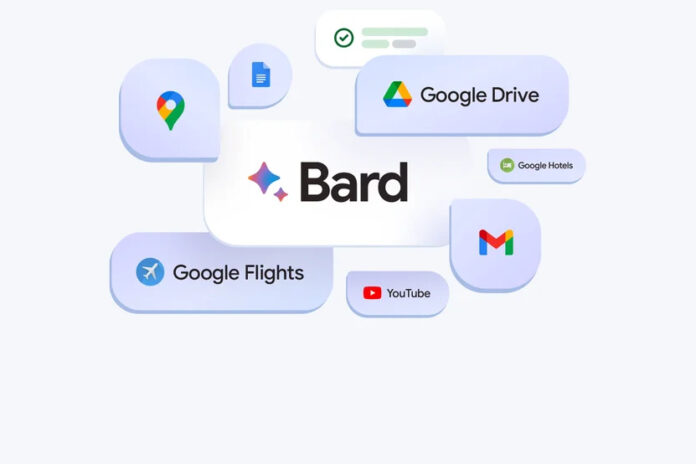(San Francisco) Google announced Tuesday that Bard, its generative artificial intelligence dialog, could now connect to other company services – email, YouTube, Maps, etc. – one more step in the race to deploy this technology.
“For example, if you’re planning a trip to the Grand Canyon (a project that requires several tabs), you can ask Bard to fetch the dates that work for everyone in Gmail, search for flights and hotels, check the trip to the airport in Google Maps and even watch videos from YouTube about activities to do there – all in the same conversation,” explains a press release from the American group.
The internet giant has been developing cutting-edge artificial intelligence systems for years, but it was caught off guard by the success of ChatGPT (OpenAI) in late 2022 and the February launch of Microsoft’s new Bing, its engine research with generative AI capabilities.
Google launched Bard at the same time, a dialog capable of producing all kinds of texts (editorials, articles, instructions, dialogues, etc.) upon simple query in everyday language, like ChatGPT.
The new tool presented on Tuesday, called Bard Extensions, can also extract data from Google Docs and Google Drive (storage), including documents in PDF format, the company said.
It must also help users to flush out “hallucinations”, when the program does not have the answer to the question asked and invents one – since it works thanks to a language model: it does not “understand” what what the words mean.
A new button, Google It, allows you to compare Bard’s results with the results of a Google search on the same subject, reporting discrepancies.
Large technology companies, led by Microsoft and Google, are rapidly deploying generative AI functionalities in their online software (office, code, search, email, etc.) to transform them into a kind of personal assistant.
At the same time, they must overcome the objections of regulators, particularly European ones, because this latest generation of AI is even more worrying than previous ones in terms of data confidentiality, risks of use for harmful purposes (fraud, disinformation) or deletions. of jobs.
On the Bard webpage, a window states that the new “extensions” will only access personal data “with your permission.”
And any extraction of personal content from Docs, Drive or Gmail, will not be used to target ads, train Bard or be seen by company employees.















